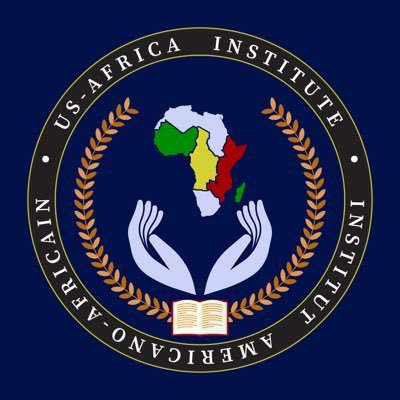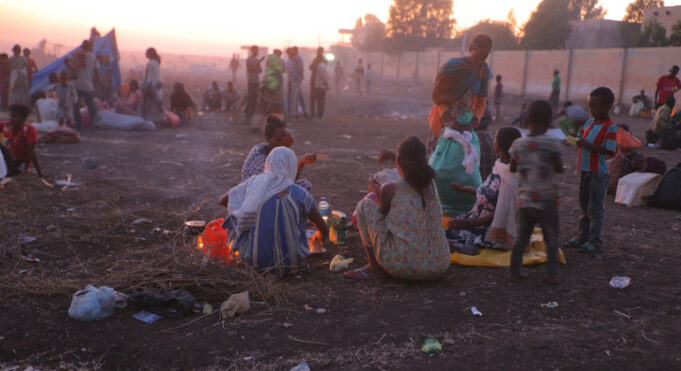On the 13th of January 2021, Addis Ababa University and the United States Africa Institute signed a Memorandum of Understanding to collaborate on tasks related to education, research and overall development at the Addis Ababa University Main Campus located in Ethiopia’s capital city.
The Los Angeles-based institute, according to its Facebook page, focuses on “Advancing the strategic partnerships between the U.S. and Africa through education, research, trade and investment, and citizen diplomacy, and serving the African diaspora.”

Founding board member of the institute, Dr. Jill Humphries, has worked throughout Africa. That includes serving as a research analyst in Zimbabwe and documenting U.S. foreign policy in Southern African hot zones as it relates to health care services to refugees and internally displaced persons. She ended up doing significant work when a “return trip to Ethiopia happened to overlap with USAI’s president and founder Dr. Tadios Belay.”
During a phone interview with Africa Watch from her California residence, Dr. Humphries shared how after she arrived in Addis Ababa, she accompanied Dr. Belay to the official MOU signing with the president of Addis Ababa University Tassew Woldehanna. It was to “commemorate the opening of our relationship, but more important the establishment of our regional office,” she explained.

Dr. Humphries was also part of a Diaspora delegation called the “Ethiopian Public Diplomacy Taskforce” and met with the director of the Ethiopian Diaspora Agency. The taskforce was responsible for raising “approximately $90,000 on behalf of the persons affected by the conflict in the Tigray region.” Dr. Humphries said, “So I accompanied them to the Ethiopian Diaspora Agency where we met with the director, where they discussed the establishment of … relations between the Ethiopian diaspora and Ethiopian nationals.”
According to a January UN News report monitoring the conflict between the Ethiopian government and the Tigray Peoples Liberation Front, “Right now we are unable to access the border from the Ethiopian side … As to the intensity of the fighting inside Tigray region, there’s nothing I can help you with at this stage,” said a UNHCR spokesperson.
He added those who had reached Sudan from Tigray told UN humanitarians they travelled for days.
UNHCR, the UN Refugee Agency, together with 30 humanitarian partners, at the end of 2020 put out an appeal for $156 million to meet critical humanitarian needs for Ethiopian refugees fleeing the conflict in Tigray through the first half of 2021. Estimates say by June 2021, up to 115,000 refugees and 22,000 additional people will be helped.
“So I actually represented the larger Black Diaspora,” Dr, Humphries said. “In addition to the Ethiopian Public Diplomacy Taskforce delivering this donation I had also galvanized medical supply donations with the Golden Mutual Association, which is a Black physicians of Los Angeles organization. They are an affiliate of the National Medical Association which is the larger Black physicians association.” This was done in collaboration with Dr. Khadijah Lang, international chair for the National Medical Association, she added. The medical supplies were delivered “by a colleague of mine to the University of Gondars Medical Teaching Hospital.”
Dr. Humphries plans on returning to Ethiopia before year’s end as her “private trip ended up being a global work trip.” It resulted in stronger relationships and “a letter of appreciation as well as invitations from Dr. Abera Amare, who is the vice president of the University of Gandar and he’s the chief executive director of the University of Gandar’s medical teaching hospital.”
Her future Ethiopian projects will include exploring with Dr. Lang ways of providing medical care to refugees and internally displaced persons with the Tigray conflict. She is also interested in developing “greater capacity building or educational exchange opportunities for Ethiopian medical physicians and other health care practitioners.”
Our discussion also turned to her Pan Africanist leanings and the institute’s relationship with the U.S. embassy via American Corners or Spaces, a network of over 600 open-access cultural centers supported around the globe by the U.S. government. They are located in more than 140 countries and connect the U.S. with the rest of the world, according to the U.S. Bureau of Educational and Cultural Affairs.
“The way in which they practice their public diplomacy and do their reaching out to the larger society in different countries … is through American Corners normally housed in public libraries,” she explained.
And, according to Dr. Humphries, that’s where the majority of educational programs including guest speakers are facilitated.
Dr. Humphries said the embassy put together a series of workshops at an American Corner location. She was invited to speak during the Dr. Martin Luther King annual holiday celebration. Instead of giving a solo address, she reached out to three U.S. colleagues to sit on a virtual panel and discuss Dr. King’s contributions to Pan Africanism and the relationships he developed with anti-colonial leaders like Kwame Nkrumah of Ghana.
“It gave us the opportunity to discuss Dr. Kings involvement with African leaders involved in the anti-colonial struggle, which is a little known area of his work,” she said.
“And so out of that relationship (developed with our) U.S. Africa Institute we had a follow up meeting at the behest of our Ethiopian counterparts to discuss how we could collaborate in a more substantive and long-term relationship. And now were partnering with them to provide educators to facilitate their language skills training for Ethiopian students and to help them develop thematic content for upcoming programs, which is incredibly important,” she said.
Follow @jehronmuhammad on Twitter.













